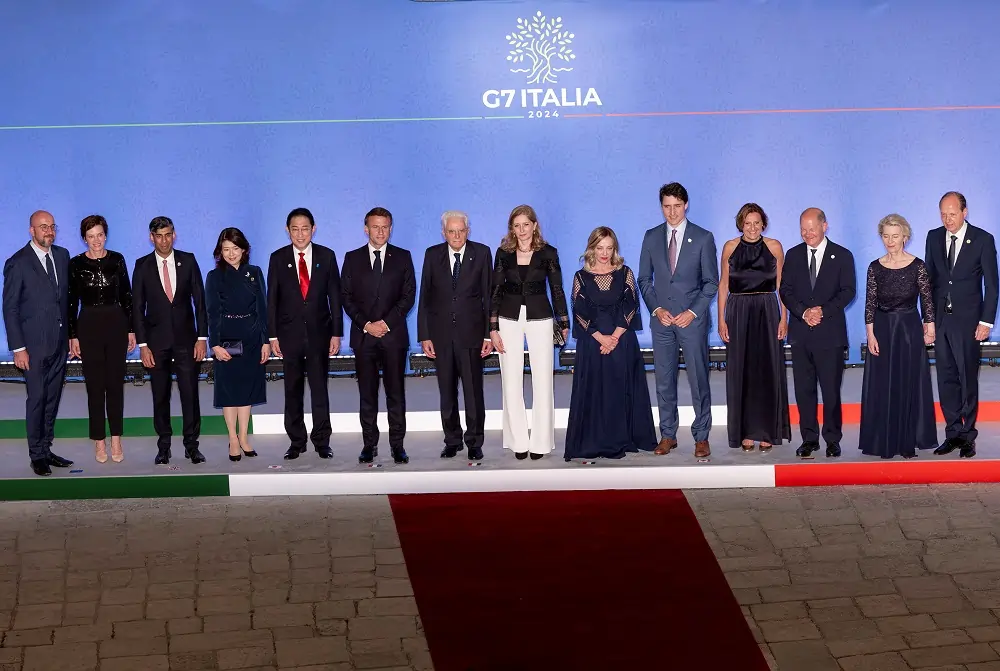
BORGO EGNAZIA, Italy (Reuters) -Leaders of the Group of Seven developed democracies will commit to accelerating their transition away from fossil fuels during this decade, according to a draft of a statement to be issued at the end of their summit in Italy.
“We will transition away from fossil fuels in energy systems in a just, orderly, and equitable manner, accelerating actions in this critical decade, to achieve net-zero by 2050 in keeping with the best available science,” said the draft seen by Reuters.
The document includes a pledge “to phase out existing unabated coal power generation in our energy systems during the first half of the 2030s”, as agreed by G7 energy ministers in April.
But it also allows an alternative commitment of phasing out coal-fired power plants “in a timeline consistent with keeping a limit of a 1.5°C temperature rise within reach, in line with countries’ net-zero pathways”, offering leeway to Germany and Japan, whose economies are still dependent on the fuel.
Climate activists were critical, saying the summit had produced a lack of concrete commitments and most pledges had already been agreed at previous lower-level meetings.
“At a time when the world needed bold leadership from them, the leaders’ meeting added no value,” said Friederike Roder, Vice President of Global Citizen.
With the COP29 United Nations climate conference due to start in November, the leaders of the United States, Canada, Japan, Germany, France, Britain and Italy said they would submit “more ambitious” national climate plans, according to the draft.
The document commits to a collective effort to reduce methane emissions from fossil fuels, including from oil and gas operations, by 75% by 2030.
GAS INVESTMENTS
However, the leaders confirm the possibility of public investments in natural gas, another polluting fossil fuel.
“In the exceptional circumstance of accelerating the phase-out of our dependency on Russian energy, publicly supported investments in the gas sector can be appropriate as a temporary response, subject to clearly defined national circumstances,” the draft said.
This section irked environmentalists, who were hoping for different language ahead of COP29.
“The G7’s reluctance to chart a bold course away from oil and gas investments reflects a broader failure to seize the moment,” said Oscar Soria, CEO of Common, an environmental and financial policy think-tank.
Italian Prime Minister Giorgia Meloni, who is hosting the summit in the southern Italian region of Puglia, has tried to shift the G7’s focus towards the Mediterranean and Africa, launching an “Energy for Growth in Africa” initiative together with seven African countries.
Under this push, the G7 is expected to direct some clean energy investments towards the continent that so far has mainly served as a source of fossil fuels and key minerals for developed nations.
However, Italian Climate Change think-tank ECCO said the lack of new financing for Africa reduced the credibility of the initiative.
(writing by Gavin Jones and Francesca Landini, editing by Alvise Armellini and Alex Richardson)


